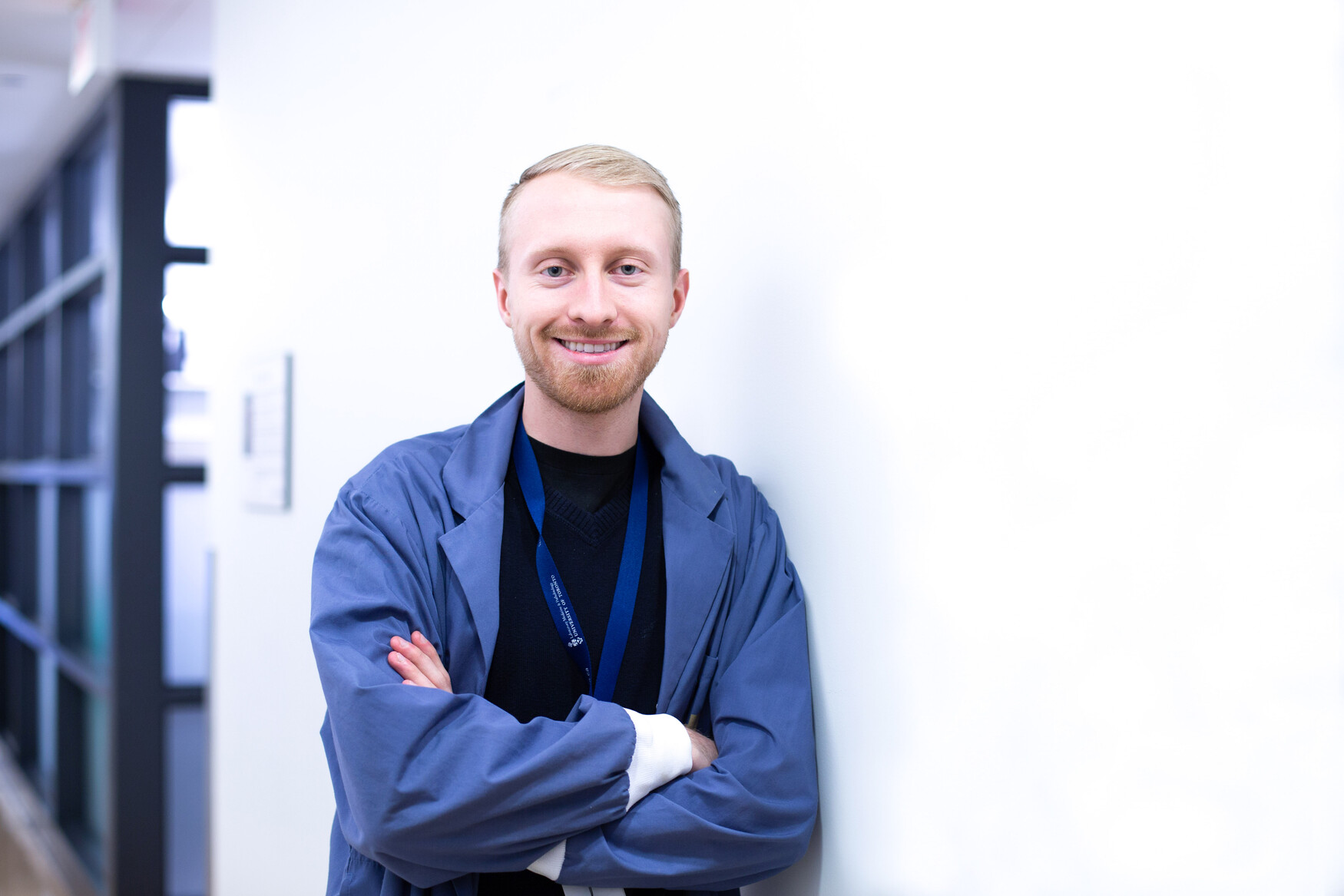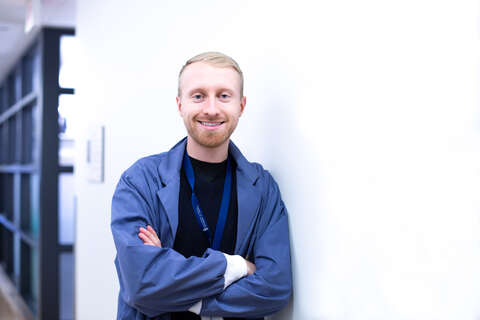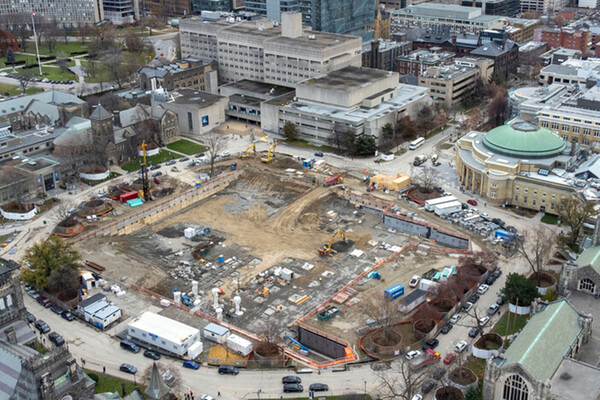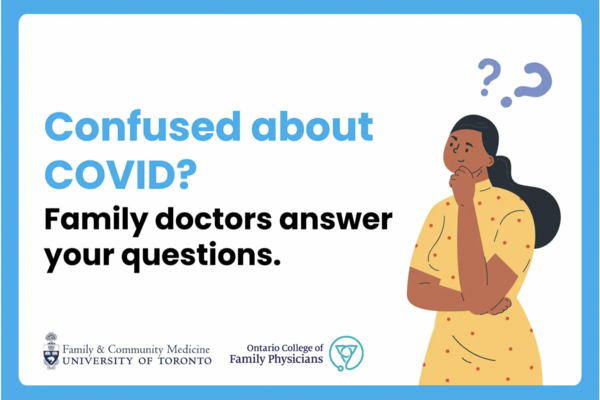Faces of U of T Medicine: Dakota Gustafson

Julia Soudat

What is your research about?
My current research project focuses on how we can better diagnose heart problems in patients with breast cancer. A diagnosis of breast cancer already brings about so much stress and uncertainty; coming to the hospital for treatment, numerous check-ups, and dealing with the side-effects of treatment. However, over the past two decades we’ve seen significant improvements to not only screening but also to the treatment options many breast cancer patients have to take. As a result, we have seen a trend of growing cancer survivorship which is great, but to contrast this we have also started to see that the very drugs necessary for this survivorship have unintended effects on other body systems.
One problem area is the cardiovascular system, particularly the heart, which as a result of the treatment can start to fail, which is what is often referred to as either cancer-therapy related cardiac dysfunction or cardiotoxicity. With the current tools and techniques, it’s very difficult to predict which patients are at the greatest risk of cardiotoxicity and therefore difficult to intervene before the damage is done. Working together with my supervisor Dr. Jason Fish and cardiotoxicity specialist Dr. Dinesh Thavendiranathan,we hope to find better markers of this toxicity that, when used in combination with the current tools, can predict who is at the highest risk.
How did you get interested in this field of research?
Completely by accident, to be honest. My original thesis work is on uncovering the roles of small circulating particles called extracellular vesicles in diabetes. Dr. Dinesh Thavendiranathan approached us, knowing we were studying extracellular vesicles, to ask if we were interested in working on this fantastic project. We were very interested in applying what we knew about extracellular vesicles and their potential as biomarkers to this very unique population of patients. While the work itself is quite exciting, interacting with the people and patients that it will hopefully benefit is the most fulfilling aspect of this work.
What impact do you hope your research will have?
When you go to the clinic and interact with people, seeing how life-changing these diagnoses are, and the massive effect it can have on someone’s life it really pushes you to do more and do better. In the end I hope this work will prevent many of the diagnoses of cardiotoxicity – if we can start interventions earlier or more effectively tailor treatment we can prevent people from even having to come to the clinic, and let them spend time in a more meaningful way.
Favourite thing about working in a lab?
The people I work with are fantastic and my absolute favourite part of working in a lab. There’s something really special about being around people that are equally as driven and curious, ready to ask the next question and always there to help out. The work itself can be somewhat tedious but that’s the nature of the game.
What advice do you have for students who are interested in pursuing research?
Go explore. Get yourself out there. Don’t be afraid to fail. Don’t be afraid if someone says no. Keep trying and just put yourself out there. There’s going to be a number of challenges throughout your academic career regardless of your training level. When faced with these challenges you just have to remember why you do what you do and use that as a means of pushing yourself forward.
You’re from a small town of 900 people. Did growing up in such a tight-knit community influence your work in any way?
There are two main things that I would take away from my experiences growing up in a smaller town. The first thing that’s been engrained in me growing up was that no task is ever below you. Doesn’t matter if you’re an undergrad, grad student, or CEO of some company. Do tasks that need to be done and show gratitude to those around you. On the farm, it was helping sweep up sheds and in the lab, it’s washing the beakers or racking pipette tips. The only thing that changed is the environment it’s done in.
The second thing is that you have to remember that not everyone has access to world-class medical facilities like we do in Toronto. A lot of small towns in Manitoba have rotating physicians and practical nurses who do the heavy lifting. When you do your research, start from the bottom up and think “Does this benefit everyone?” or “How can we make sure everyone has access to this?” For my work in particular, using and optimizing blood-based diagnostics has always been in the back of my mind as it’s more accessible then something like a cardiac MRI, and the specimen can be taken in essentially every clinic.
Anything words of wisdom for other researchers from small towns?
Shout out to all the researchers from small towns! It’s tough to get out of your comfort zone and go explore something like the big city. If you ever have the chance to do something different, even if it’s scary – go do it. At 17, I left to go to Queen’s for my undergrad in biochemistry. It was a massive, life-changing step, and at every point it was as scary as it was exciting but in the end all the experiences were completely worth it.
News


